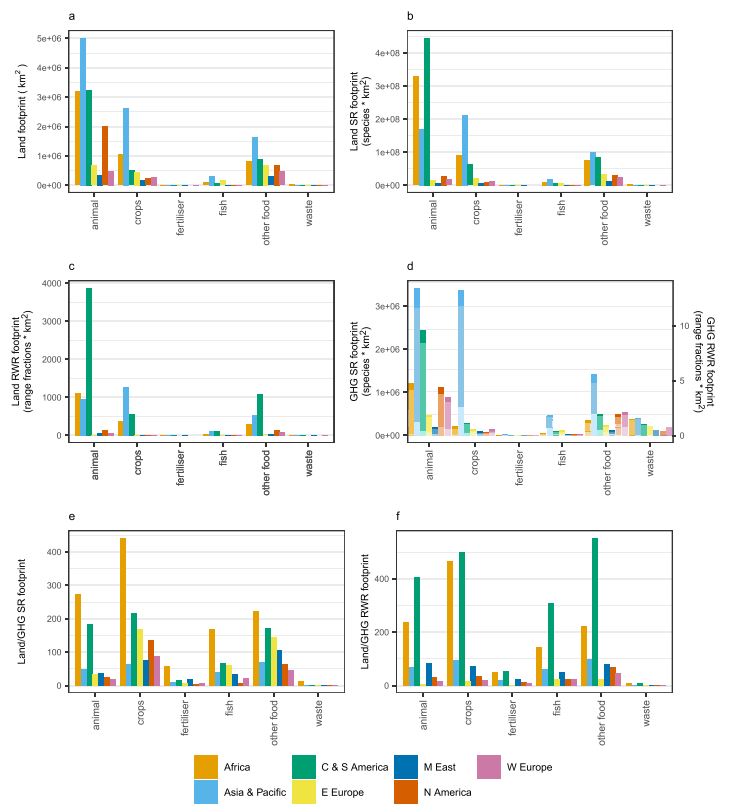July 9, 2024 | Nature Communications | Source |
Introduction: The global food system incurrs heavy biodiversity loss through both land use and greenhouse gas emissions. Using the EXIOBASE model, researchers from University College London in the UK estimat the biodiversity impacts of food production in 2011.
Key findings: The researchers found biodiversity loss cannot be fully accounted for by loss of habitats due to agricultural land development and use, especially in regions with rich species diversity, such as Central and South America. Significant percentage of biodiversity loss is due to climate change impact of agricultural GHG emissions, 70% of which is attributable to methane emissions from food production. The study also shows that food production's climate impact accumulates quickly, with just a decade of emissions adding significantly to overall biodiversity loss. Thus, the shift towards more sustainable food production practices to better protect biodiversity, shall emphasize the need to reduce methane emissions.
Figure | Production-based footprints of aggregated food-related groups within aggregated world regions for the year 2011. Footprints relate to (a) land area, (b) land-driven species richness (SR) loss, (c) land-driven rarity-weighted richness (RWR) loss, (d) GHG-driven biodiversity loss split by emissions type: carbon dioxide (dark shade), methane (mid shade), nitrous oxide (light shade) (right-hand axis –species richness; left-hand axis – rarity-weighted richness), (e) the ratio of landdriven species richness loss to total GHG-driven species richness loss and (f) the ratio of land-driven rarity-weighted richness loss to total GHG-driven rarityweighted richness loss. Source data are provided as a source data file.




